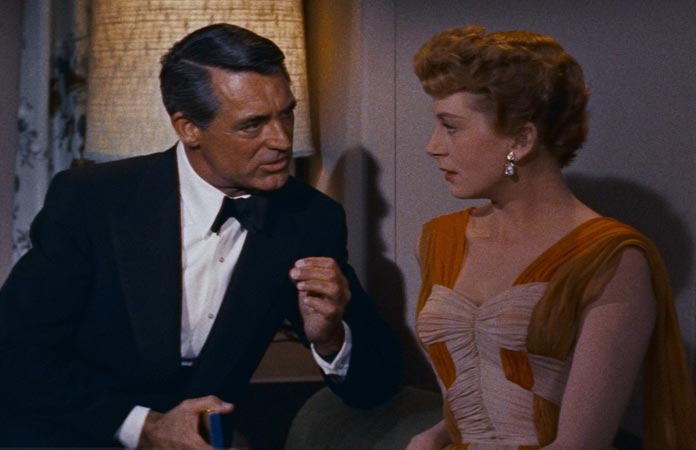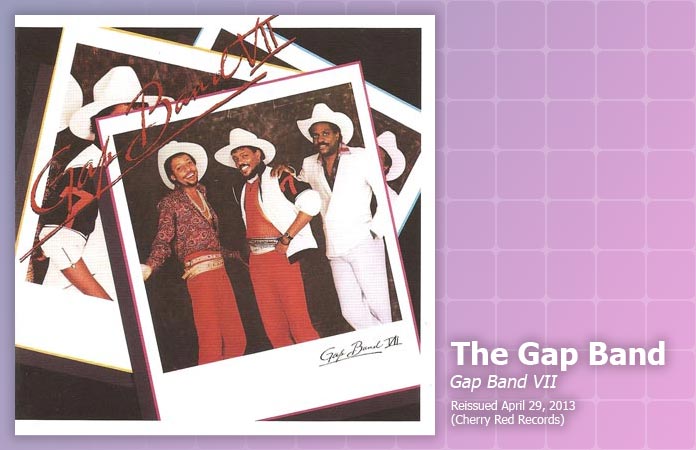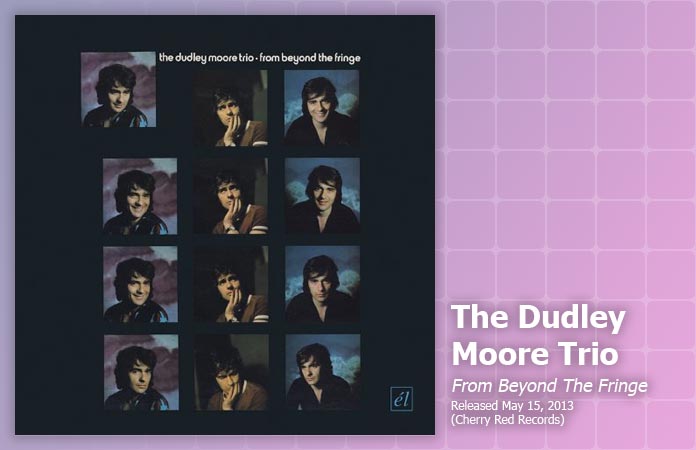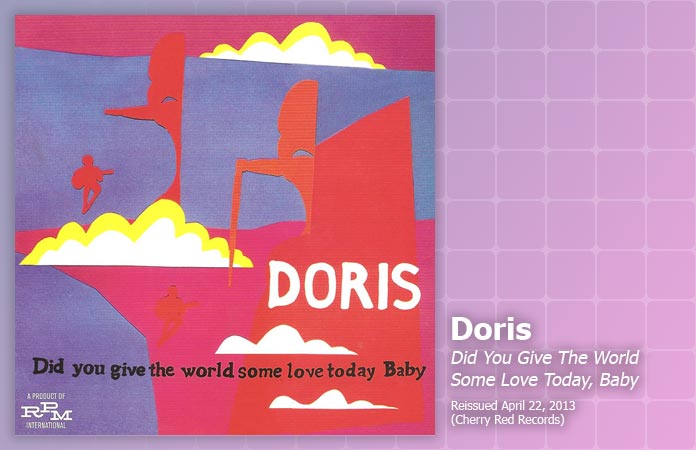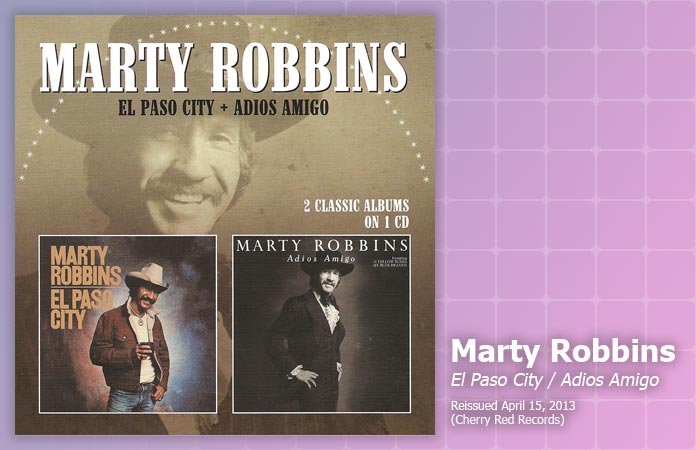DVD Review: The Cary Grant Film Collection
Published on June 17th, 2013 in: DVD, DVD/Blu-Ray Reviews, Movie Reviews, Movies, Retrovirus, Reviews |It is nearly impossible to write about Cary Grant without mentioning the words suave, dashing, elegant, or handsome, so let’s just get all of those words out of the way now. Twentieth Century Fox has released a six-DVD box set of a collection of Cary Grant films and it’s a decent overview of his career.
Music Review: The Gap Band, Gap Band VII
Published on June 12th, 2013 in: Music, Music Reviews, Retrovirus, Reviews |For the first time on CD and remastered like it’s spanking new, The Gap Band’s 1986 Gap Band VII, is a strange, unsatisfying blend of things. There are moments of pure brilliance and pleasure, and there are moments of uninspired insipidness. The moments of brilliance nearly make up for those. Nearly.
Music Review: The Dudley Moore Trio, From Beyond The Fringe
Published on June 4th, 2013 in: Culture Shock, Current Faves, Music, Music Reviews, New Music Tuesday, Retrovirus, Reviews |By Cait Brennan
Dud, we hardly knew ye.
To Americans of a certain age, Dudley Moore was that loveable, “cuddly” Englishman of a certain height who improbably got the girl in several huge blockbusters of the ’70s and ’80s—notably Foul Play, 10, and Arthur (for which he received a well-deserved Oscar nomination). Even his less-successful films kept him firmly in the pop-culture consciousness throughout the ’80s—Wholly Moses, Micki and Maude, Best Defense, the Preston Sturges remake Unfaithfully Yours, Arthur 2: On The Rocks, Santa Claus: The Movie, the delightfully crass advertising send-up Crazy People.
Hits or flops, there’s something to love in all those films, and more importantly in his absolutely magnificent work in films like Stanley Donen’s Bedazzled; Bryan Forbes’s The Wrong Box; 30 Is A Dangerous Age, Cynthia; The Bed Sitting-Room; and so many others. But many of his film fans are only vaguely aware of Moore’s career as a highly regarded jazz composer and pianist, whose albums and film scores are every bit the equal of his comedy talent.
Music Review: Doris, Did You Give The World Some Love Today, Baby (Expanded Edition)
Published on June 3rd, 2013 in: Current Faves, Feminism, Music, Music Reviews, Retrovirus, Reviews |Issued only in Sweden in 1970, Doris’s second album Did You Give The World Some Love Today, Baby is an overlooked gem. It’s a mix of jazz, pop, country, and psychedelia, all percolated together and topped with a singer who has great range and charm. I had put this album on my iPod when it arrived, and when a song would pop up on random play, I’d think, “Oooh, this is interesting,” but it has to be listened to as a whole. Did You Give The World Some Love Today, Baby is mind-blowing and brilliant. It was intended to introduce Doris to English speaking audiences, but it tanked, which is a terrible shame. Newly remastered here, it is absolutely worth listening to.
Music Review: Marty Robbins, El Paso City/Adios Amigo (Reissue)
Published on May 16th, 2013 in: Current Faves, Music, Music Reviews, Retrovirus, Reviews |I’m a nostalgist. What I love about reissues is hearing a song I’ve forgotten entirely about. In a beat, I’m transported to the back-backseat of my parents’ station wagon, listening to KTTS on the radio. The reissue of Marty Robbins’s El Paso City/Adios Amigo took me right back to that station wagon.
Music Review: The Armoury Show, Waiting For The Floods (Reissue)
Published on April 29th, 2013 in: Current Faves, Music, Music Reviews, Retrovirus |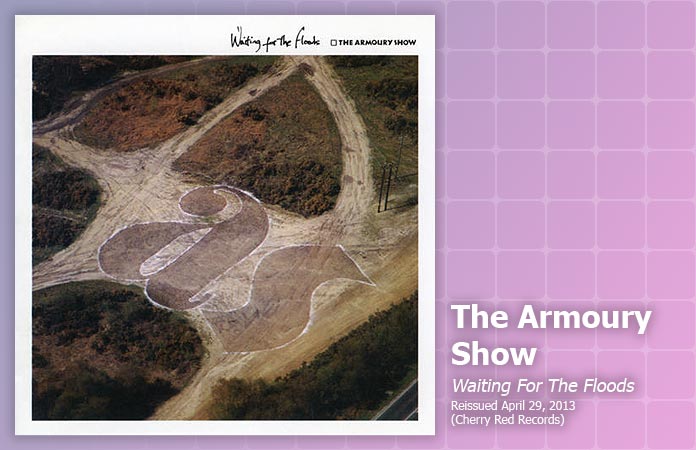
In 1985, The Armoury Show took Britain by storm, billed as the first punk supergroup. By 1987, they had fallen off the radar completely, leaving only one album behind. Cherry Red’s reissue of that album, Waiting For The Floods, is a beautiful shiny thing, a welcome rediscovery of a band that faded out far too quickly.
Consisting of former members of Magazine, The Skids, and Siouxsie & the Banshees (John McGeoch!), The Armoury Show served up gorgeously slick cathedral Goth with strangely danceable grooves. Theirs was not music for the stand and shuffle crowd. You could dress up in your funereal best and still sway your anthemic hips, maybe even crack a smile.
Music Review: Lynsey de Paul, Sugar And Beyond/Into My Music Anthologies
Published on April 10th, 2013 in: Current Faves, Feminism, Music, Music Reviews, Retrovirus, Reviews |By Hanna
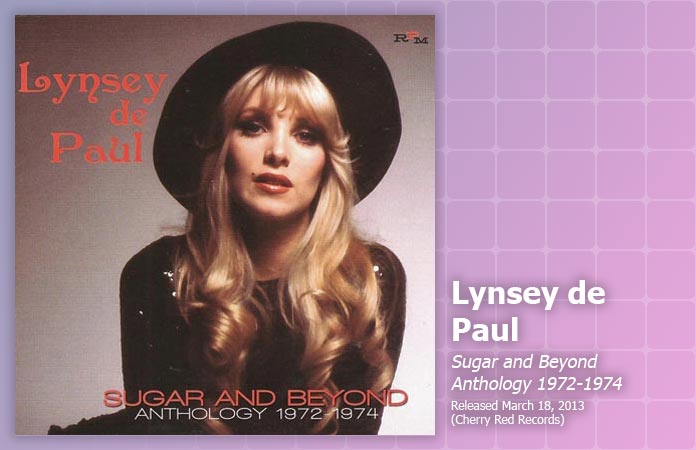
The entire ‘70s catalogue of pioneering female singer/songwriter Lynsey de Paul has finally been collected in two new anthologies: Sugar and Beyond 1972 – 1974 and Into My Music 1975 – 1979. Using exclusive material and information from Lynsey de Paul herself, this is a unique collection, signifying a new chance to discover her work and to grant it the recognition it deserves.
Music Review: Gene Clark, Here Tonight: The White Light Demos
Published on April 2nd, 2013 in: Current Faves, Music, Music Reviews, New Music Tuesday, Retrovirus, Reviews |By Cait Brennan
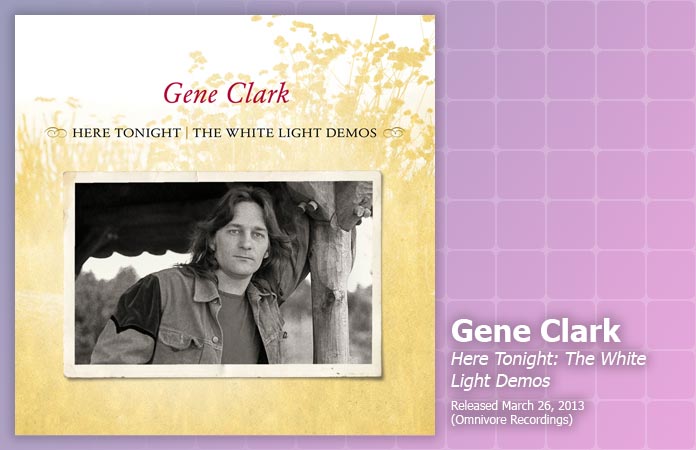
The experience of being alive is joyous and unbearable. This crude matter we’re made of fights us every step of the way, but something deeper, something more, some beauty and energy blasting through from a source we can’t know animates us, fills us, drives us onward, and the friction, the vibration of energy that moves us, is what we call music. Where does it go, do you suppose, when we’re gone? Nobody knows, but you’ve gotta hope that when the radio breaks, still the signal shines on.
If rock and roll means anything worth caring about, it’s the need to express something real and beautiful and transcendent from the human soul. But that need can lead to soul-destroying results. There’s a fake thing called fame today, but it’s nothing like the sun that blistered down on the rock and roll bands of the 1960s. Know-nothing hambones like Mike Love get out in front and let their egos feast on the callow roar and toxic adulation of the crowd while sucking the lifeblood out of the delicate creative genius that brought them to the party, like a fat tick on a sick dog. The songwriter gets in the way? Kick ’em out of the band and keep the carnival on the road. Don’t mess with the formula, right?
Which brings us to the Byrds’ creative genius, Gene Clark. A down-to-earth, folk-influenced kid from the Midwest, he co-founded the band, and (excepting a few covers written by some stray named Robert Zimmerman) was the songwriting powerhouse behind the Byrds’ golden age. Just a few of the highlights he wrote or co-wrote: “I’ll Feel A Whole Lot Better,” “She Don’t Care About Time,” “I’m Feelin’ Higher,” “If You’re Gone,” “Here Without You,” “The World Turns All Around Her,” “Set You Free This Time,” oh, and a little number called “Eight Miles High.”
Music Review: Emily Bindiger, EMiLY
Published on February 25th, 2013 in: Current Faves, Feminism, Music, Music Reviews, Retrovirus, Reviews |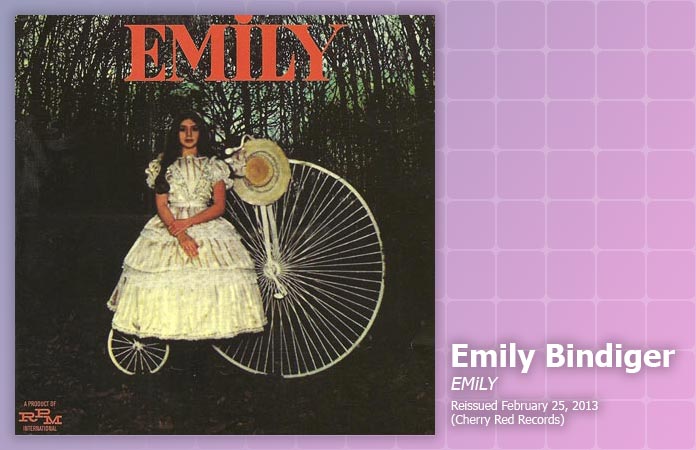
Before Kate Bush or Fiona Apple, there was Emily Bindiger. While on summer leave from the High School of the Performing Arts in New York, Bindiger was cast in the legendary, star-making French revue Double V. She dropped out of school and traveled to Paris alone to appear in the show. Through Double V, Bindiger met Michel Polnareff, who introduced her to the members of the psychedelic pop band Dynastie Crisis. Bindiger’s lone solo album, EMiLY, was released through Pathe in 1972. In honor of the album’s fortieth anniversary, British label Cherry Red has given EMiLY its MP3 debut.
Music Review: George Jones—The Complete United Artists Solo Singles
Published on February 12th, 2013 in: Current Faves, Music, Music Reviews, Retrovirus, Reviews |By Cait Brennan
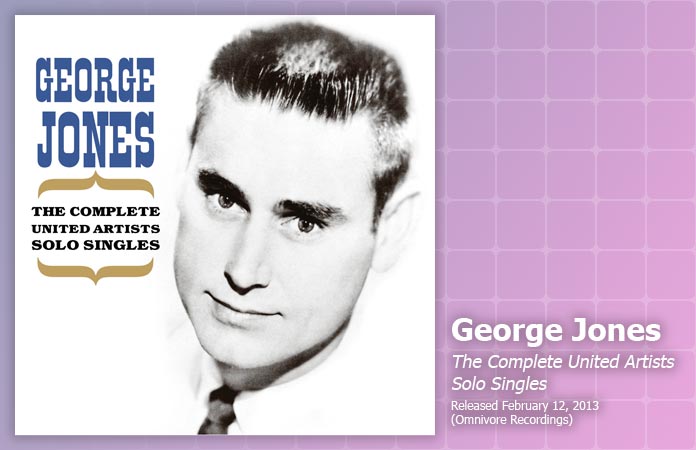
“Country music,” George Jones told music writer Holly George-Warren “is a religion to me.” Well, if country music is a religion, George Jones’s music is one of the bedrock gospels. From 1950s hillbilly hellion to elder statesman of the genre, Jones has always been one of the purest singers in country music. Jones is “just” a country singer the way Sinatra was “just” a saloon singer—both men mastered, then transcended their genres, making each song uniquely their own.
Some of Jones’s finest mid-’60s sides are collected on George Jones—The Complete United Artists Solo Singles, one of three essential country music compilations released on February 12 by those high llamas of music at Omnivore Recordings. No no-shows here; this is prime time Possum, showing the hall of fame singer on a diverse range of material penned by Jones and some of classic country’s greatest songwriters.
